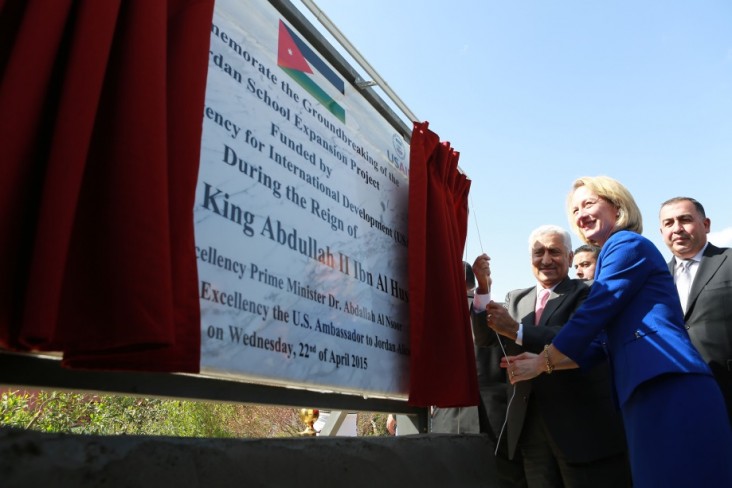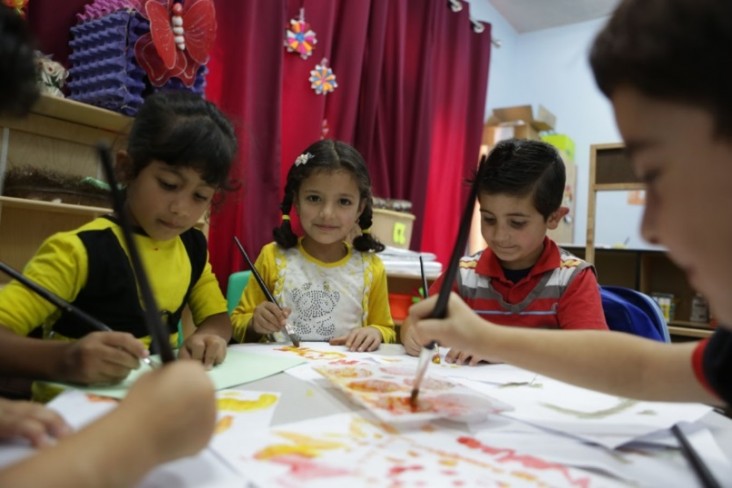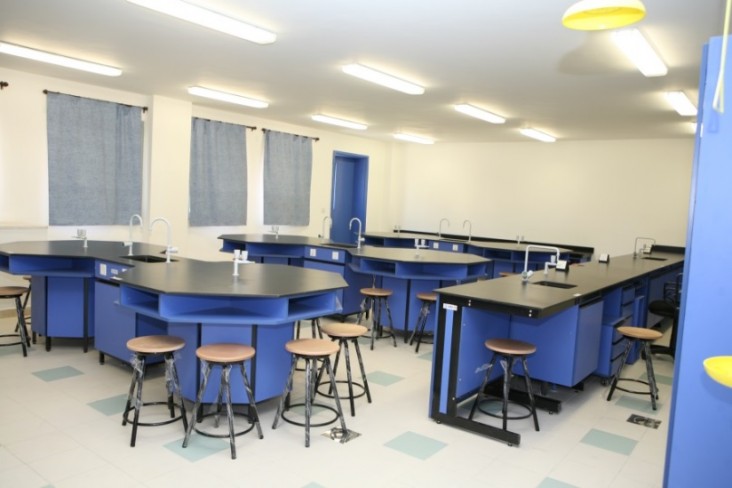Background

Despite the very high enrollment rates and the availability of access to schools across the Kingdom, the quality of education in Jordan remains uneven. Recent reports indicate increased numbers of overcrowded, double-shifted and rented schools. The situation in these schools has worsened in the last three years due to the influx of Syrian refugees and inceased pressure on the public basic education system. Poor learning evironments, in part caused by inadequate physical infrastructure, compromise the quality of education in Jordan. USAID provides support to Jordan to address these challenges through multiple school infrastructure programs. One major project is the Jordan School Expansion Project (JSEP).
Project Overview
The project’s primary objective is to increase students’ access to improved school environment and to provide youth with facilities for sports and other activities. Other objectives are to:Launched in April 2014, JSEP is a five-year, $100 million project that aims to improve quality and access to basic education across Jordan and provide safe and improved learning environments for youth. By the end of 2018, JSEP will rehabilitate and expand up to 120 existing public schools, 20 of which are “fast-track” schools. Fast-track projects are the first wave of construction under JSEP and aim to quickly respond to and alleviate the pressures of rising populations due to the increase in Syrian refugees. The project will also construct 300 kindergarten classrooms and 50 sports fields/facilities for youth in the same timeframe. This project will be implemented through multiple awards to architecture-engineering firms, construction contractors and suppliers.

- Reduce overcrowding in existing classrooms
- Reduce double-shifted schools, which limit the sustainability of school infrastructure and inhibit the educational environment
- Provide the capacity to respond to a growing population and increased enrollment rates in basic education
- Improve the quality, functions and layout of existing schools to strengthen the relationship of students with their place of learning and increase performance
- Increase access to public kindergartens
- Provide better opportunities for youth and encourage teamwork, creative thinking and involvement in community work by establishing facilities for sports and other activities in targeted areas
Activities
The phases for activities in JSEP include school and site selection, planning and design, and construction. The following table represents the distribution of completed construction activities over the coming four years:
|
Activity |
2015 |
2016 |
2017 |
2018 |
Total |
|
Fast-track school expansions |
20 |
0 |
0 |
0 |
20 |
|
School expansions |
0 |
20 |
50 |
30 |
100 |
|
Kindergarten classrooms |
0 |
80 |
100 |
120 |
300 |
|
Sports and activity facilities |
0 |
0 |
10 |
40 |
50 |








Comment
Make a general inquiry or suggest an improvement.